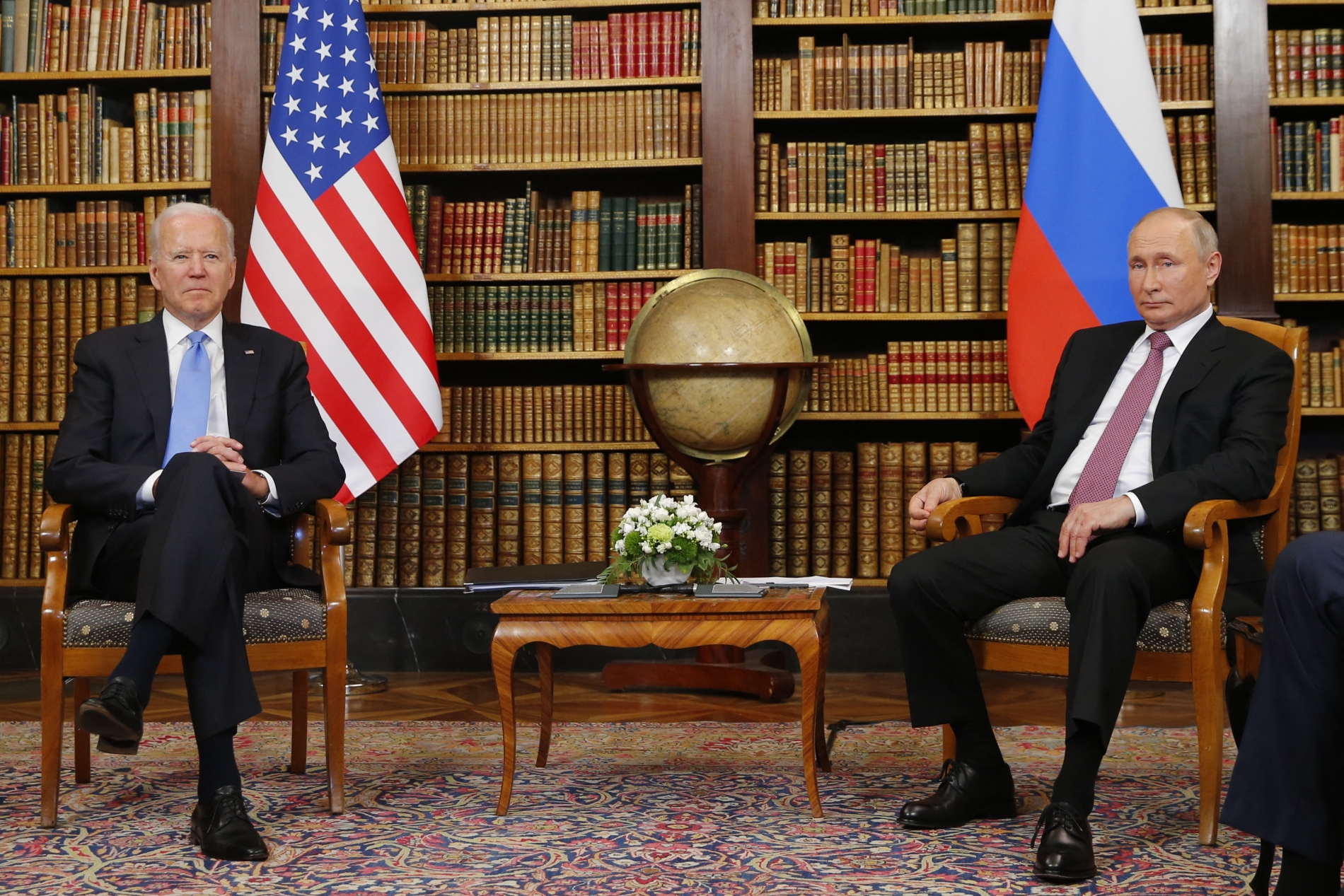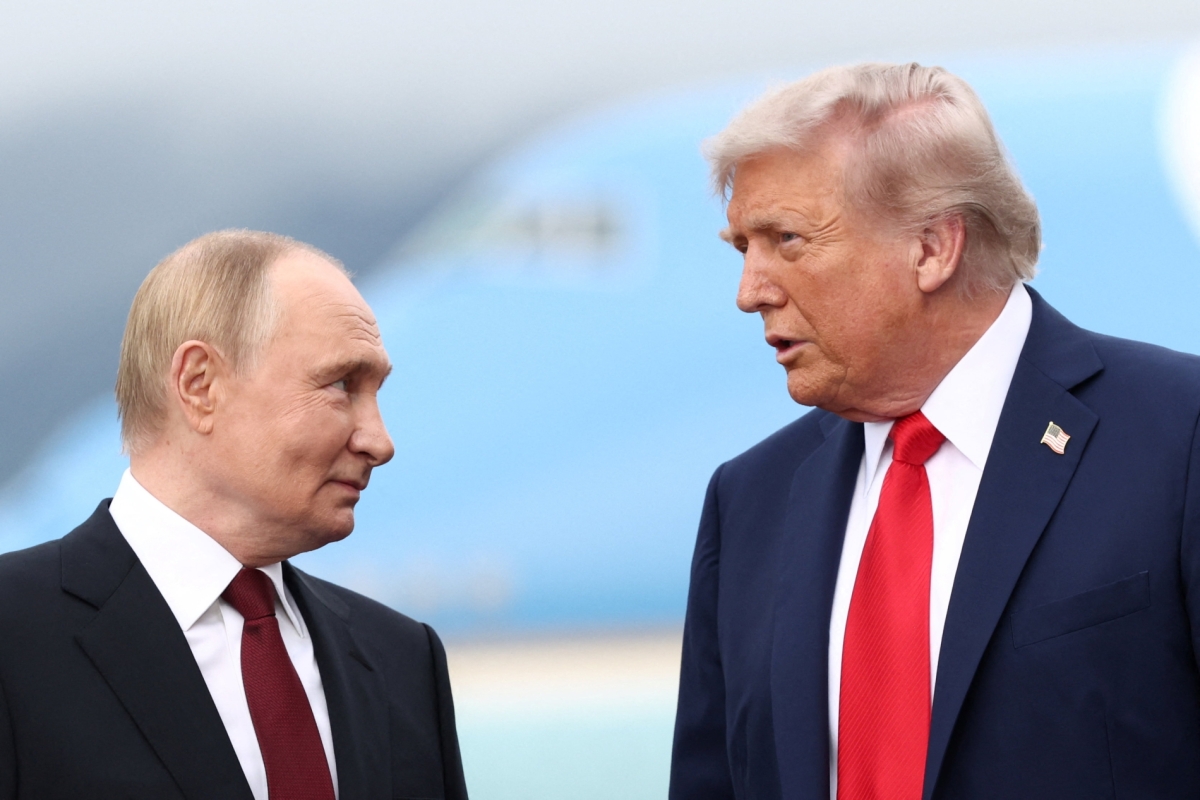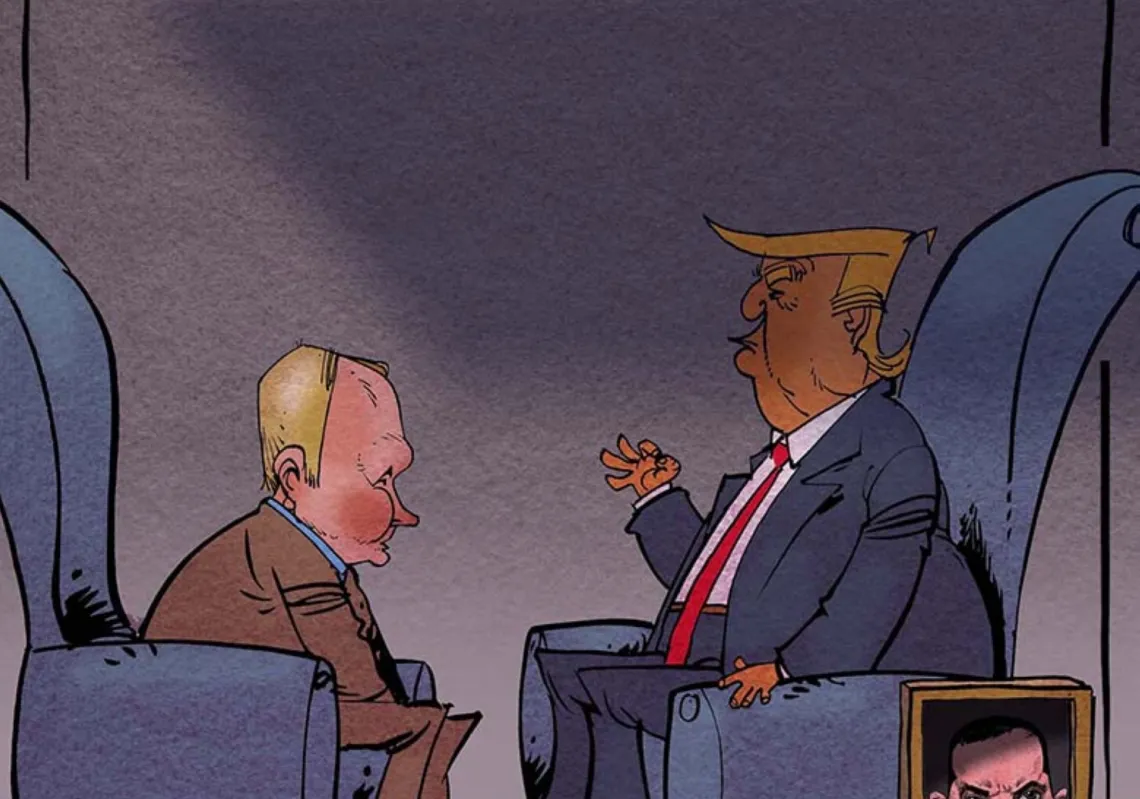The White House may describe US President Donald Trump’s meeting with his Russian opposite number, Vladimir Putin, as a ‘listening exercise’, but it is no understatement to suggest the future of European security ultimately rests on the outcome of the talks.
A deal that makes clear Putin will not achieve the goals he set when he launched his so-called ‘special military operation’ will be greatly to Europe’s benefit, as it will send a clear message to the Kremlin that military aggression is never the answer to resolving territorial disputes between nations.
Any agreement, though, that hands Putin a victory will be fraught with danger for the rest of Europe, as it will encourage Moscow in the belief that it can use its military might to mount challenges elsewhere in Europe, be it in the Balkans or Central Europe.
Such a move risks triggering Article 5 of the NATO treaty, which would require member states to come to the defence of any member that comes under attack from Russia, thereby running the risk of a world war.
The stakes could therefore not be higher when Trump travels to Alaska on Friday, 15 August, which might explain why the White House is deliberately playing down expectations of a breakthrough.
Rather than predicting any outcome from the Alaska talks, the White House is suggesting there might be a second summit in quick succession, assuming negotiations go well with Putin. Speaking ahead of the summit, White House press secretary Karoline Leavitt said the meeting in Alaska would be more of a ‘listening exercise’ than a negotiation to end the conflict. ‘This is a listening exercise for Trump,’ she said, indicating that the talks might not yield the desired results, and adding that one-on-one discussions are ‘part of the plan.’

The summit is due to be held in Anchorage, Alaska’s largest city. It is Putin's first visit to the US in a decade and his first meeting with a US president since June 2021, when he shook hands with Biden in Geneva. CNN has reported that the meeting will be held at the US military facility, Joint Base Elmendorf-Richardson, which is able to provide the necessary security arrangements for the visit.
The Trump administration has hailed the meeting as a breakthrough in its long-running efforts to negotiate an end to the Ukraine conflict, which has lasted now for three and a half years after Putin launched his so-called ‘special military operation’ to conquer Ukraine in February 2025.
European fears
Many European allies, though, have expressed their concern about the meeting, which they fear may result in Trump agreeing to terms that amount to a sellout of Ukrainian sovereignty. There has been particular concern expressed over Trump’s suggestion that some form of land swap might be involved in the talks.
Even though Trump has previously had several lengthy phone calls with Putin, leading the US leader to believe he had agreed a ceasefire with the Kremlin, no such deal was forthcoming. The Trump administration is therefore keen to play down suggestions that the summit will be seen as a ‘win for Putin’, who is nominally subject to an international arrest warrant over allegations of his involvement in war crimes in Ukraine.












